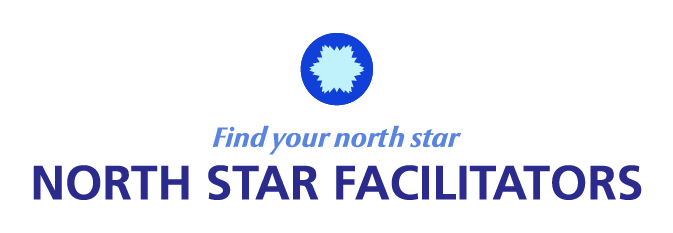3 Key Areas to Dramatically Improve Your Facilitation Practice



 This blog asks some provocative questions and gives you starter answers and example stories to help dramatically improve your facilitation business or practice. It has application to both in-house and external facilitators. It is meant to inspire you to make your facilitation practice more rewarding, balanced and joyous. We’ll briefly look at specific ways to do this.
This blog asks some provocative questions and gives you starter answers and example stories to help dramatically improve your facilitation business or practice. It has application to both in-house and external facilitators. It is meant to inspire you to make your facilitation practice more rewarding, balanced and joyous. We’ll briefly look at specific ways to do this.
We’ll cover the top 3 issues that I’ve encountered with many small facilitation (and other service based) businesses.
Top three issues of having a facilitation practice…
If any of these three phrases below are true for you, you are what I am calling either ‘underwhelmed’ or ‘overwhelmed’ by your practice – i.e., you don’t have enough work, it is boring you, or you are working so hard you can’t feel the passion any more. I’ll review each phrase below and offer you a few inspiring tips and stories.
1. I can’t afford to hire help but am spending all my time on marketing and administration.
 Let me paint the picture for you…when you first thought about starting a facilitation business or being one of the in-house facilitation gurus, you had stars in your eyes. You imagined all the great groups you’d be working with and the amazing interventions that you would plan. You saw yourself really being a change agent. BUT…you are instead spending a lot of time trying to find clients, setting up systems, bookkeeping, and other sundry tasks or facilitating a lot of really boring meetings. None of these appeal to you. However you say, “I can’t hire someone or get someone to help me because I’m not making any money yet.” Or if you are an in-house facilitator you might be saying, “I can’t ask for support because I’m not really doing enough in-house meetings yet.” This is a common myth that I have encountered with most newer entrepreneurs or intrapreneurs.
Let me paint the picture for you…when you first thought about starting a facilitation business or being one of the in-house facilitation gurus, you had stars in your eyes. You imagined all the great groups you’d be working with and the amazing interventions that you would plan. You saw yourself really being a change agent. BUT…you are instead spending a lot of time trying to find clients, setting up systems, bookkeeping, and other sundry tasks or facilitating a lot of really boring meetings. None of these appeal to you. However you say, “I can’t hire someone or get someone to help me because I’m not making any money yet.” Or if you are an in-house facilitator you might be saying, “I can’t ask for support because I’m not really doing enough in-house meetings yet.” This is a common myth that I have encountered with most newer entrepreneurs or intrapreneurs.
The year I hired more administrative assistance, my net income increased by 50%. This happens because you have more time and energy to devote to getting and keeping clients. Start small. Perhaps you can find someone at a rate that is affordable for you and only hire them for 3-6 hours per week. Imagine, that’s probably many hours a week less of doing administration work or setting up the meeting room yourself because they will be so much more efficient than you are. And, there is nothing like having a fixed expense to get you out hustling for more clients.
See my blog for more info about working with an assistant: My Secret Recipe for More Time, More Money and More Fun
2. I’m not sure how to get the clients/groups I really want.
 Whether you are an in–house facilitator or an external one, try imagining exactly what type of client and what type of work (i.e. subject matter) you’d LOVE to have. I am talking about the clients you’d gladly stay up all night for because their mission is so enticing or they are just so collaborative, fun, etc. You will be amazed that once you get clarity on this, these types of clients start showing up. If you think these types of clients/groups need a little nudging to come into your practice, ask all of your colleagues and friends, “Who would be a good decision making person to speak to in this field of expertise?” Then systematically set up interviews with 3 to 5 of the key people you have been given and prepare yourself well for what you want this person to know about your services. It took three months for me to get an interview with one CEO of large national Not for Profit Organization (NPO). She hired me that very day for the biggest job I had ever had. I am glad I had the courage to go see her.
Whether you are an in–house facilitator or an external one, try imagining exactly what type of client and what type of work (i.e. subject matter) you’d LOVE to have. I am talking about the clients you’d gladly stay up all night for because their mission is so enticing or they are just so collaborative, fun, etc. You will be amazed that once you get clarity on this, these types of clients start showing up. If you think these types of clients/groups need a little nudging to come into your practice, ask all of your colleagues and friends, “Who would be a good decision making person to speak to in this field of expertise?” Then systematically set up interviews with 3 to 5 of the key people you have been given and prepare yourself well for what you want this person to know about your services. It took three months for me to get an interview with one CEO of large national Not for Profit Organization (NPO). She hired me that very day for the biggest job I had ever had. I am glad I had the courage to go see her.
More recently in my business I decided I wanted to work on climate change issues. I was very clear that the last few years of my business this would be my focus as well as social justice issues. To my surprise, I started having corporate clients send me email messages asking me to work with them on either leadership integration or diversity and inclusion topics. Before I decided to work with them, I checked their website to review their commitment to sustainability and reducing their carbon footprint. To my surprise each client had a huge and extensive effort in sustainability. I make this point just to reinforce that the clearer you are about what you want, they find you.
Another tip I would give you is to speak at conferences and local chapters of business groups, management and coaching associations. It helps to get your name out there and the kind of things a facilitator does. Although these are technically your competitors, most of them are not pure process facilitators and will refer you to some of the not-for profit boards and/or work teams they are a part of.
See my blog about the value of attending facilitation conferences: Choose the BEST EVER Professional Development Plan – For You!
3. I wonder why I’m working so hard… and nobody appreciates me. 🙁
 Isn’t being in business for oneself or having a facilitation practice supposed to be joyous? Once we have worked hard to gain credibility and found that our energy is not needed to market ourselves, we still wonder why we are working so hard. Sometimes it’s because we are afraid we will lose the business. Sometimes it’s because we just feel well loved and appreciated and we don’t want to turn anyone down that says they need us. If these are true, list all the ways you are working really hard for little reward. Take a few hours each month to analyze where your energy and effort is going and decide which pieces you can drop. And, other colleagues might really welcome work that you no longer wish to accept. Do you really need to take that underpaying, highly challenging client job that will cause you to lose sleep? Maybe someone else would gladly do it for you with a little behind the scenes support from you.
Isn’t being in business for oneself or having a facilitation practice supposed to be joyous? Once we have worked hard to gain credibility and found that our energy is not needed to market ourselves, we still wonder why we are working so hard. Sometimes it’s because we are afraid we will lose the business. Sometimes it’s because we just feel well loved and appreciated and we don’t want to turn anyone down that says they need us. If these are true, list all the ways you are working really hard for little reward. Take a few hours each month to analyze where your energy and effort is going and decide which pieces you can drop. And, other colleagues might really welcome work that you no longer wish to accept. Do you really need to take that underpaying, highly challenging client job that will cause you to lose sleep? Maybe someone else would gladly do it for you with a little behind the scenes support from you.
In my own experience, when I do turn down work, I always make sure that person that called or emailed me has a good backup plan. By that I mean, since they are not able to access my services, I make sure they know the names of other good facilitators, or they find an in-house solution to deal with the original request they came to me for. That way I feel good about turning it down and they may refer more interesting work to me in the future.
I’ve written a blog that includes an excellent job assessment tool you can use: The Ultimate Equation for Deciding on a Facilitation Job
Other Great Resources
My blogs and handout on the 9 Facilitator Stages to Becoming an Excellent Process Facilitator includes the stage “Questioner” (Stage 8) that may be also relevant to this blog.
Blog: The 7 Stage Facilitation Journey – Which One Are You On?
Blog: Keeping the Faith – The Last 2 Stages of the Facilitator Journey
Note: This is update to an older blog that I thought might be relevant for those attending the IAF Asia conference in Osaka this week. A lot of the participants have their own facilitation business.

